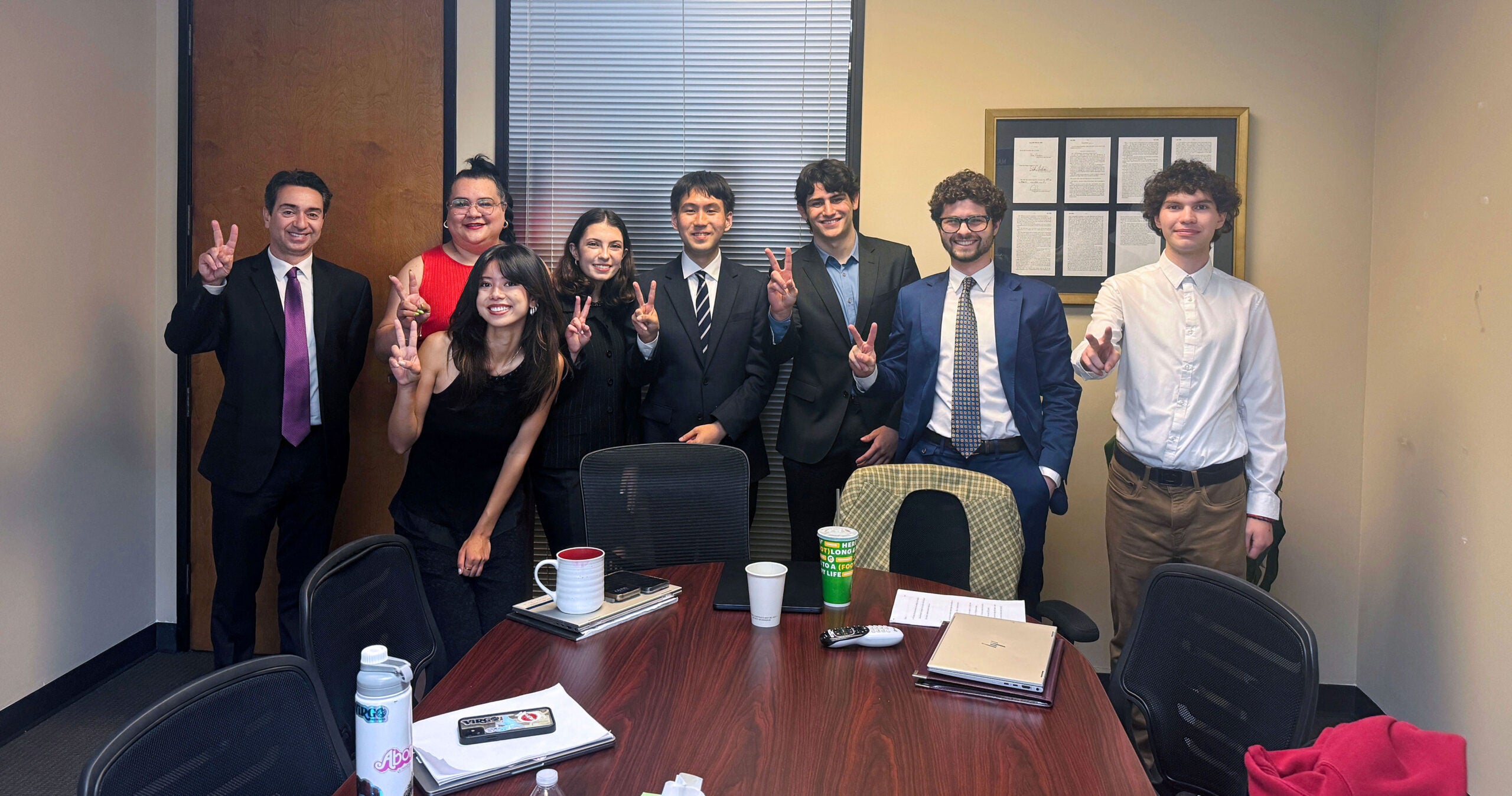
Spring 2024: “The Impact of Eminent Domain on BIPOC Communities and Their Intergenerational Wealth in Los Angeles” with Congresswoman Sydney Kamlager-Dove
For the Spring 2024 semester, CPF POSC 395 Policy Research Internship students explored how eminent domain affected communities in south Los Angeles, especially Black communities within California’s 37th Congressional district. Eminent domain allows the government to expropriate property for public use, with payment of compensation and with or without the consent of the property owner. It is constitutionally allowed with limits. The Fifth Amendment states in part: “[N]or shall private property be taken for public use, without just compensation.” Federal, state, and city governments have used eminent domain to acquire land for roads, bridges, parks, public buildings, railroad tracks, transmission lines, and more. Students examined its impacts on land ownership, generational wealth, and community prosperity. They presented their extensive research and recommendations to our partner, Congresswoman Sydney Kamlager-Dove.
Sofia Connors, a sophomore majoring in Political Science, said this about her research experience:
“I was grateful to take part in the POSC 395 Policy Research Internship for Congresswoman Sydney Kamlager-Dove, researching eminent domain in Los Angeles and its impact on BIPOC communities. I learned about the ways the government has historically used eminent domain to target minority communities in Los Angeles, segregating them and gentrifying their communities. This internship taught me about the foundations Los Angeles was built upon, that many fail to acknowledge. It is rewarding to know we could be making an impact on policy, potentially getting reparations for the countless Black families displaced by eminent domain and had their homes taken.”
Project: The Impact of Eminent Domain on BIPOC Communities and Their Intergenerational Wealth in Los Angeles
USC Students: Sofia Connors, Sydney Crowley, Christian Haro, Juan Herdoiza, and Bright Lee
Research Question: How has eminent domain affected communities in south Los Angeles, especially Black communities within California’s 37th Congressional district? And what, if anything, should be done to address those impacts on land ownership, generational wealth, and community prosperity?
Policy Recommendations:
- A Path to Ethical Eminent Domain
- Attorney-Fee Solution
- Government pays for landowners’ attorney fees
- Incentivizes fair compensation
- Expands legal access
- Limit Private Transfers
- Abide by a strict definition of “public use”
- Limit “economic development” projects
- Land Back Initiatives
- Use eminent domain to return land to BIPOC communities
- Remedy lost generational wealth
- Alter Discriminatory Requirements
- Reconsider California’s 2014 eminent domain bill, which targets low-income communities
- Require studies on impacts
- Attorney-Fee Solution
- Improving Compensation Packages
- Fair Market Value of the Property includes:
- Loss of Investment Income
- Emotional Distress Equation
- Loss of Income
- Landowners as Shareholders
- Relocation Costs
- Negative Externalities
- Fair Market Value of the Property includes:
Read the group’s full research presentation.
Watch the video presentation on “The Impact of Eminent Domain on BIPOC Communities and Their Intergenerational Wealth in Los Angeles.”